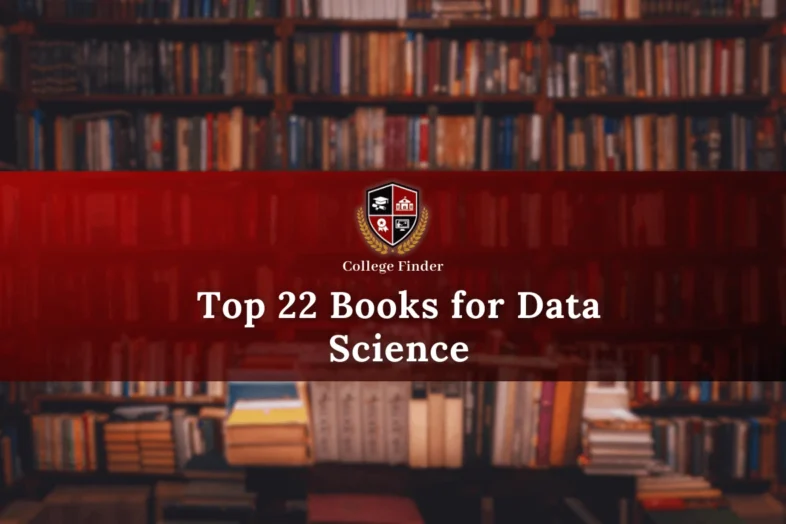
- September 2, 2023
- 178
- Data Science , News and Articles
Table of Contents
Introduction:
Data Science has emerged as one of the most lucrative and dynamic fields in the modern job market. With its continuous innovation and growing demand across industries, it promises rewarding career opportunities for years to come. Whether you are just starting your journey in data science or seeking to enhance your expertise, books remain an invaluable resource. In this comprehensive guide, we have meticulously selected and reviewed the top 22 data science books to help you navigate this exciting realm of knowledge.
Foundational Books for Data Science Beginners
1. Head First Statistics: A Brain-Friendly Guide
If you’re new to statistics or want to refresh your understanding, “Head First Statistics” is your ideal companion. This book’s conversational tone and user-friendly approach make it a fantastic starting point. It covers a wide spectrum of statistical concepts, from the basics like mean and median to more advanced topics like correlation and regression. With captivating real-life examples and memorable illustrations, this book is a gentle introduction to the world of data science.
Statistics plays a pivotal role in the foundation of data science. It is the language that allows us to uncover meaningful insights from data, and “Head First Statistics” ensures that you grasp these concepts with ease. The book progresses logically, starting with descriptive statistics such as mean, median, mode, and standard deviation. As you delve deeper, it seamlessly transitions into probability and inferential statistics, introducing you to correlation and regression analysis.
What sets this book apart is its engaging style. Unlike traditional statistics textbooks that can be dry and intimidating, “Head First Statistics” adopts a warm and conversational tone. It feels like you’re having a friendly chat with the author, which significantly reduces the fear factor associated with statistics. The use of easy-to-remember drawings, graphics, and side notes enhances the learning experience, ensuring that concepts stick in your mind.
Moreover, the book provides numerous real-life examples that relate statistics to practical scenarios. This not only makes the content more relatable but also reinforces your understanding of statistical concepts. Whether you’re a science or commerce student revisiting what you’ve learned or someone entirely new to statistics, this book is an excellent place to start your data science journey.
2. Practical Statistics for Data Scientists
As the title suggests, “Practical Statistics for Data Scientists” offers a pragmatic approach to statistics. It caters to beginners by providing a comprehensive overview of essential concepts, such as randomization, sampling, and distributions. The book also introduces machine learning models, offering a bridge between statistics and data science. While it serves as a quick reference, it might not suffice for those seeking an in-depth understanding due to its concise explanations.
Statistics is not merely a theoretical exercise but a practical toolkit for data scientists. “Practical Statistics for Data Scientists” recognizes this fact and focuses on the concepts and techniques that are directly applicable to real-world data analysis.
The book begins by explaining the fundamentals of statistics, ensuring that even readers with limited prior knowledge can follow along. It covers essential topics like probability, sampling, and hypothesis testing, offering clear explanations and examples. What sets this book apart is its emphasis on practicality. Each concept is accompanied by a relevant case study or example, demonstrating how statistics can be used to solve actual data science problems.
One of the standout features of this book is its introduction to machine learning models. While this might surprise some readers in a statistics book, it underscores the growing integration of statistics and machine learning in data science. Understanding the role of statistics in machine learning is crucial for aspiring data scientists, and this book provides a solid foundation.
However, it’s important to note that “Practical Statistics for Data Scientists” is not an exhaustive guide. Due to its focus on practicality, it provides concise explanations of concepts, which may leave some readers craving more depth. Therefore, it’s best suited for those looking for a quick reference and practical application rather than an extensive theoretical exploration of statistics.
3. Introduction to Probability
Probability is the backbone of statistics and a fundamental concept in data science. “Introduction to Probability” is a timeless classic that has been widely appreciated for nearly half a century. It is, without a doubt, one of the best books on probability, making it a must-have for anyone serious about mastering this essential component of data science.
Probability can be an intimidating subject, but this book goes a long way in demystifying it. The explanations are clear and resemble real-world issues, making it accessible even to those with minimal prior exposure to probability. While it does assume some mathematical knowledge, it is written in a way that allows self-learners to grasp the basic principles with dedication.
What sets this book apart is its enduring relevance. Despite being in circulation for nearly five decades, “Introduction to Probability” remains a highly regarded resource. This longevity is a testament to its effectiveness in conveying complex concepts in an understandable manner. If you’re learning probability for the first time or revisiting it to solidify your foundation, this book is a valuable companion.
Furthermore, the book covers a wide range of topics within probability, from basic concepts like random variables and probability distributions to more advanced topics like Markov chains and stochastic processes. This comprehensive coverage ensures that you gain a well-rounded understanding of probability, which is essential for tackling data science problems.
In summary, “Introduction to Probability” is a timeless classic that lays a solid foundation in probability theory. While it may require a bit more time and effort due to its mathematical nature, it’s a worthy investment for anyone serious about excelling in data science.
Books for Python and Machine Learning Enthusiasts
4. Introduction to Machine Learning with Python: A Guide for Data Scientists
If Python and machine learning intrigue you, “Introduction to Machine Learning with Python” is an excellent starting point. This beginner-friendly book explains complex topics in straightforward language, offering plenty of practical examples. While it’s a solid foundation for novices, it may not suffice as you delve deeper into machine learning and coding.
Python is the go-to programming language for data science, and machine learning is a key component of the field. “Introduction to Machine Learning with Python” is a book that bridges these two crucial aspects, making it an ideal choice for aspiring data scientists.
What sets this book apart is its user-friendly approach. It assumes minimal prior knowledge, ensuring that even beginners can grasp the concepts. The tone is pleasant and straightforward, making it accessible to a wide audience. This is crucial because machine learning can be a daunting topic for newcomers.
The book covers fundamental machine learning concepts such as classification and regression, guiding you through the process of building and evaluating machine learning models. It also includes Python examples, eliminating the need for prior mathematical or programming expertise.
While it’s an excellent resource for beginners, it’s essential to acknowledge its limitations. As you progress in machine learning and coding, you may find that reading this book alone is not enough to tackle more advanced topics. However, it serves as an excellent stepping stone for those taking their first steps into the world of machine learning.
5. Python Machine Learning By Example
“Python Machine Learning By Example” lives up to its title by offering a practical, hands-on approach to machine learning with Python. This book is not just about understanding machine learning concepts but about applying them to real-world scenarios. It’s suitable for both beginners and more advanced users, making it a valuable resource for anyone interested in machine learning with Python.
The book starts with fundamental Python concepts, making it accessible even if you’re new to the language. However, it’s worth noting that having some basic Python knowledge can enhance your learning experience. The author provides clear explanations and guides you through various machine-learning techniques using Python.
What sets this book apart is its focus on practicality. It presents machine learning through real-world examples, including spam email detection, prediction using regression, and tree-based algorithms. By working on these projects, you’ll gain hands-on experience and develop the skills needed to create your machine-learning models.
Additionally, the author shares his experiences in various fields of machine learning, such as ad optimization, conversion rate prediction, and click fraud detection. This adds a valuable layer of insight to the book, showing how machine learning is applied in diverse industries.
While “Python Machine Learning By Example” covers the fundamentals comprehensively, it’s worth noting that, as you progress in your machine learning journey, you may need to explore more advanced topics. However, it’s an excellent starting point for both beginners and those looking to enhance their Python-based machine learning skills.
6. Pattern Recognition and Machine Learning
“Pattern Recognition and Machine Learning” is a comprehensive resource that caters to a wide range of readers, from undergraduates to advanced researchers. The best part? If you have a Kindle subscription, you can access this book at no extra cost. The international edition even includes vivid illustrations and graphs to enhance your reading experience.
When it comes to substance, this book leaves no stone unturned in covering machine learning from top to bottom. It provides a comprehensive overview of machine learning concepts and techniques, explaining them in a straightforward manner with the help of examples.
While the book is packed with valuable content, some terms and concepts may be challenging for certain readers. However, you can supplement your understanding by referring to free resources such as web articles or videos.
One notable aspect of this book is its extensive coverage of the mathematical aspects of data analytics. It delves deep into the mathematical foundations of machine learning, making it a must-have for anyone interested in the mathematical underpinnings of data science.
While students can use this book for self-study, it’s advisable to complement it with additional machine learning courses, especially for a more comprehensive understanding of the subject.
Books for Python and Data Analysis Enthusiasts
7. Python for Data Analysis
“Python for Data Analysis” lives up to its title by covering a wide range of data analysis methodologies. It’s an excellent starting point for newcomers, as it begins by introducing the fundamentals of Python before diving into its role in data analysis and statistics. The book’s clear and concise explanations, coupled with its practical approach, make it an excellent choice for those looking to embark on a data analysis journey.
Data analysis is a fundamental aspect of data science, and Python is a versatile tool for performing data-related tasks. “Python for Data Analysis” effectively bridges the gap between these two aspects, providing you with a solid understanding of what you can expect as a data analyst or data scientist working with Python.
The book covers essential topics such as data manipulation, visualization, and statistical analysis. It progresses logically, ensuring that you build your skills step by step. By the time you finish the book, you’ll be capable of creating useful applications within a week.
What adds to the book’s value is the author’s inclusion of numerous references and pointers to essential online resources. This helps you stay updated and continue your learning journey beyond the book’s pages.
In summary, “Python for Data Analysis” is a well-organized and comprehensive book that thoroughly explains data analysis concepts and Python’s role in the process.
8. Naked Statistics
“Naked Statistics” takes a unique approach to demystifying statistics and making it engaging and accessible. The book’s casual and humorous tone ensures that you won’t be bored or overwhelmed by math. It starts with fundamental concepts like the normal distribution and the central theorem and progresses to more complex topics such as correlating data analysis and machine learning.
While the book does an excellent job of explaining the basics, it’s worth noting that some prior knowledge of statistics can enhance your experience. This will allow you to dive deeper into the book’s content and fully appreciate its insights.
The strength of “Naked Statistics” lies in its ability to explain complex statistical concepts through relatable examples and real-life scenarios. The author’s storytelling approach makes the material more engaging and memorable.
Additionally, the book’s coverage extends beyond statistics, touching on the relationship between data analysis and machine learning. This holistic approach provides a broader perspective on how statistics fits into the larger data science landscape.
If you’re looking for a statistics book that not only educates but also entertains, “Naked Statistics” is an excellent choice. It makes statistics approachable and enjoyable, which is a rare feat in the world of data science literature.
9. Data Science and Big Data Analytics
“Data Science and Big Data Analytics” introduces the world of big data and its significance in today’s technology-driven world. It provides a gentle overview of the complete data analytics lifecycle, complete with a case study and engaging visuals to illustrate how the system works in practice.
The book’s structure and flow are exceptional, presenting each stage of the data analytics process as a chapter in a book. This organization allows you to quickly grasp the big picture of how analytics operates.
The book covers various data analytics techniques, including clustering, regression, association rules, and more. Each concept is explained using straightforward, everyday examples that anyone can relate to. It also introduces advanced analytics using tools like MapReduce, Hadoop, and SQL.
If you’re looking to learn data science with R, this book is an excellent choice. It not only provides a comprehensive overview of data science but also demonstrates how to implement these techniques using R.
10. R for Data Science
“R for Data Science” is tailored for those who want to learn R for data analysis. It discusses statistical concepts and the types of data encountered in real-life scenarios. It teaches you how to transform raw data using fundamental concepts like median, average, and standard deviation. It also covers data cleaning and transformation techniques.
One of the most time-consuming aspects of data analysis is data transformation, and this book equips you with a wealth of information on various approaches to preprocessing data for analysis.
While you can start reading the book without prior R knowledge, it’s worth considering taking some basic online courses to get familiar with the language. However, the book covers enough fundamentals that you can begin working with R right away.
Additional Data Science Reference Books
In addition to the foundational books mentioned above, there are several other reference books that can be incredibly useful in your data science journey:
11. Inflection Point
“Inflection Point” is not a how-to manual but rather a book that helps you understand the significance of data science and big data in today’s world. Written from a business perspective, it offers engaging anecdotes and personal experiences to illustrate how technologies like cloud computing, big data, IT, mobility, and infrastructure are revolutionizing business operations.
This book beautifully captures the changing times and provides insights into how businesses should adapt to thrive in this data-driven era. It’s an exciting read that will keep you motivated as you delve deeper into the world of data science.
12. Storytelling with Data
“Storytelling with Data” emphasizes the power of storytelling and data visualization in conveying information effectively. It covers essential concepts of data visualization, showing you how to make the most of the vast amounts of data available in the real world.
The author uses a unique storytelling approach to explain each idea, making it easy to pick up numerous concepts in a single day of reading. The book teaches you to understand context and audience, select the right visualization for different situations, eliminate clutter, and present crucial data effectively.
Effective data storytelling is a vital skill for data scientists, and this book equips you with the tools and techniques needed to excel in this aspect of the field.
13. Big Data – A Revolution
“Big Data – A Revolution” is a must-read for anyone interested in big data, data science, or artificial intelligence. While it’s not a technical book, it provides a comprehensive understanding of how big data is collected, transformed, and leveraged for business gains.
The book explores how businesses utilize the data and information shared on the internet to develop breakthrough solutions that simplify our lives and bring us closer together. It also delves into the risks and consequences of these actions, highlighting the importance of data security measures.
For those looking to gain a broader perspective on the impact of big data on society and business, this book is an excellent choice.
14. R for Data Science: Import, Tidy, Transform, Visualize, and Model Data
“R for Data Science” caters to readers at a medium level, offering a balanced mix of basic and advanced data science principles. The book’s focus on business requirements makes it both practical and engaging.
Unlike most books, this one explains not only how but also why things are done in data science. It encourages readers to delve deeper into topics like deep learning and machine learning.
This book is suitable for both beginning and advanced data scientists, offering a gradual increase in complexity as you progress through its chapters.
15. The Data Science Handbook
“The Handbook of Data Science” is a book for advanced readers who already have a basic understanding of statistics and data science. It serves as both a technical reference and a rapid resource, providing information in a question-and-answer format from top data scientists.
The questions are organized to help you grasp every aspect of data science, from data preparation and the importance of extensive data to the automation process and the future of data science in the digital world.
While the book lacks real-world case studies, it offers numerous strategies and insights from renowned data scientists, making it a valuable resource for those looking to dive deep into data science.
16. Business Analytics – The Science of Data-Driven Decision Making
“Business Analytics – The Science of Data-Driven Decision Making” is an in-depth book that discusses both theory and practical applications, providing a well-rounded understanding of data science. The author takes a balanced approach to the topics and includes multiple simple case studies for readers to learn, understand, and follow.
The book covers all aspects of data science, including economics, statistics, and finance. It effectively blends fundamental and advanced topics and even introduces statistical and analytical tools and machine-learning techniques.
By the end of the book, you’ll find scholarly models and discussions on Six Sigma, making it a comprehensive resource for those looking to excel in data science and data-driven decision-making.
17. Data Mining Techniques
“Data Mining Techniques” is an excellent book that delves into data mining from the ground up. It is written in such a way that even readers without a computer science background can understand it.
The book starts by describing the digital age and data mining, gradually introducing readers to the types of data that can be mined. It also discusses the patterns that can be extracted, such as cluster analysis, predictive analysis, and correlations, as well as the technologies used, including statistics, machine learning, and databases.
This entirely technical book covers a wide range of fundamental and advanced classification and cluster analysis techniques. It also explores current trends and research in data mining, making it a valuable reference for anyone interested in this field.
18. Thinking with Data
“Thinking with Data” is a concise book that complements other books and online courses. It provides readers with essential information and encourages critical thinking in the realm of business. The book helps you understand why things are happening the way they are and teaches you how to ask intelligent, relevant questions.
As you progress through the chapters, you’ll learn how to jot down essential elements of a concept, focus on key facts, and apply data-specific reasoning processes. The book covers the CoNVO framework, emphasizing context, needs, vision, and outcome.
19. Machine Learning with PySpark
“Using PySpark for Machine Learning” explores machine learning models, natural language processing applications, and recommender systems using PySpark in depth. It helps you comprehend and solve real-world business problems by offering supervised learning techniques such as linear regression, decision trees, and logistic regression.
This book is highly beneficial if you practice what you learn instead of just reading it. It expands your knowledge by covering PySpark’s extensive libraries, which are ideal for machine learning and data analysis. It’s an excellent resource for learning how to use Spark to create clean and straightforward recommender systems.
20. Generative Deep Learning
“Generative Deep Learning” makes complex topics like neural networks and probability easy to understand through engaging anecdotes. The book’s storytelling approach adds dynamism and excitement to what can be perceived as dull disciplines. While it’s advisable to have some Python knowledge before starting the book, it provides a comprehensive foundation for learning deep learning from scratch.
This book is one of the best resources for individuals looking to understand deep learning from the ground up.
21. Data Science for Business
If you’re unsure about pursuing a career in data science, “Data Science for Business” is an excellent starting point. It outlines why learning data science is essential and how it offers the best opportunities for your career.
The book provides practical examples, such as recommendation systems, telecom churn rate analysis, and automated stock market analysis. It keeps you motivated and provides numerous references to help you start your technical journey.
Rather than focusing solely on data collection and analysis, this book highlights the discovery of new business cases, making it a unique addition to your data science library.
22. Designing Data-Intensive Applications
O’Reilly’s “Designing Data-Intensive Applications” explains the architecture of today’s data systems and how they can be integrated into data-driven and data-intensive applications. While it doesn’t delve into management, security, or installation details, it provides an in-depth understanding of data retrieval, database systems, and fundamental principles.
This book is particularly valuable for architects and individuals looking to expand their knowledge of database and data solutions. The author covers a wide range of topics related to data and provides additional resources for further exploration.
Conclusion:
In this comprehensive guide, we’ve explored 22 of the best data science books carefully selected to cater to a range of readers, from beginners to advanced data scientists. These books cover a variety of topics, including statistics, machine learning, Python, R, data analysis, data visualization, and more.
Whether you’re just starting your journey in data science or seeking to enhance your expertise, these books offer valuable insights and knowledge to help you succeed in this exciting field. Remember that while books are a valuable resource, hands-on practice, and continuous learning are essential to becoming a proficient data scientist.
So, whether you’re looking to solidify your statistical foundation, enhance your programming skills, or delve into advanced machine-learning techniques, you’ll find a book on this list that suits your needs. Happy reading and learning on your data science journey!

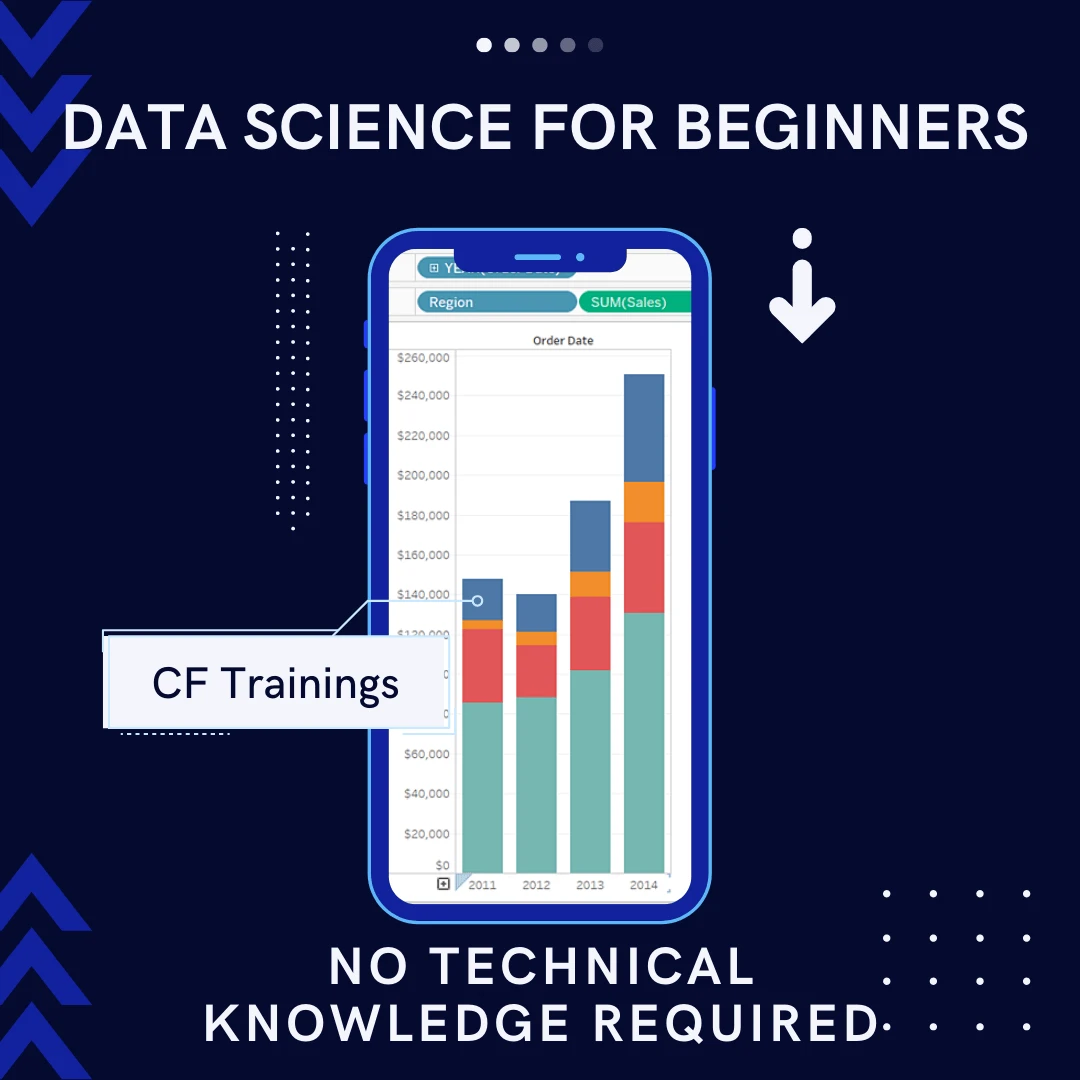
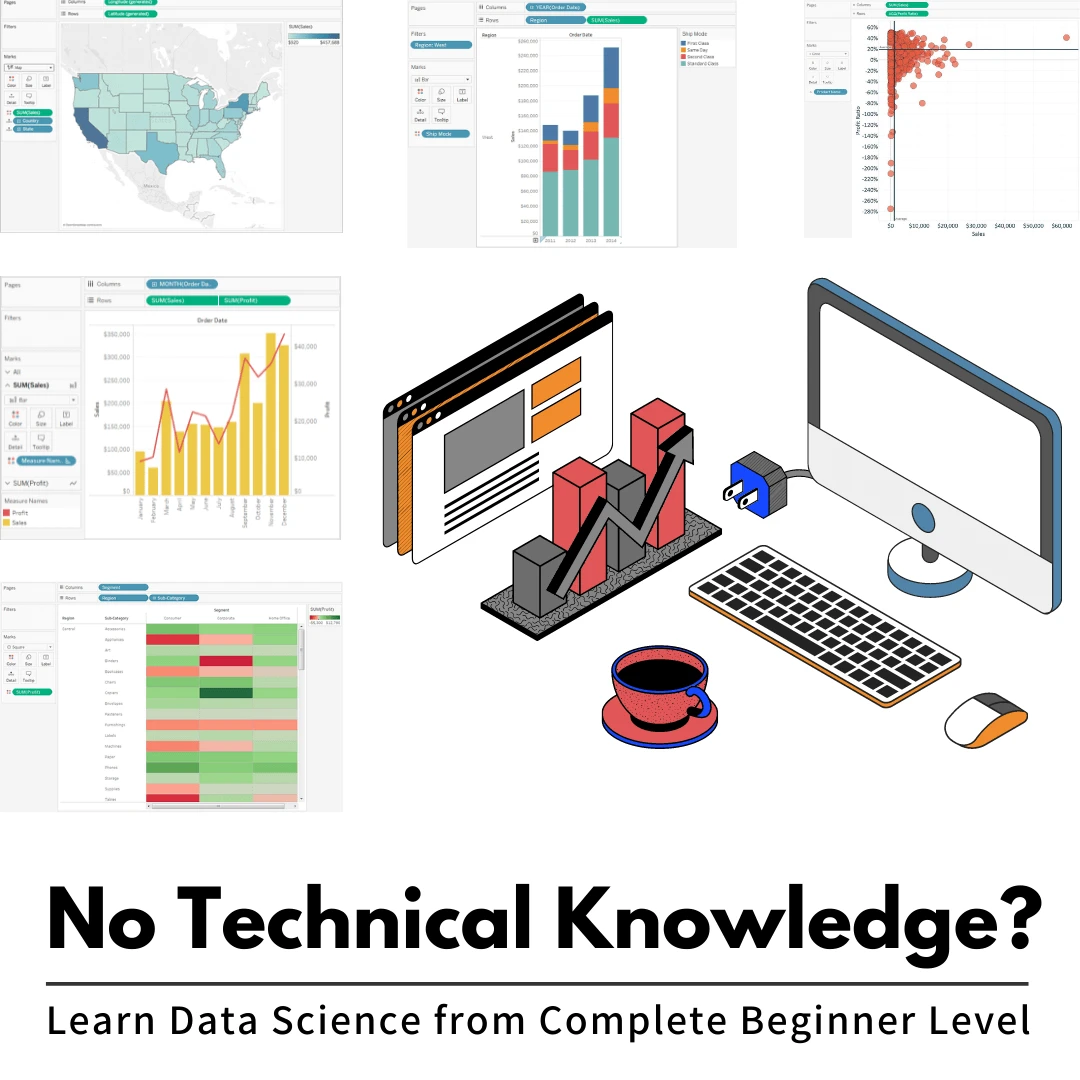

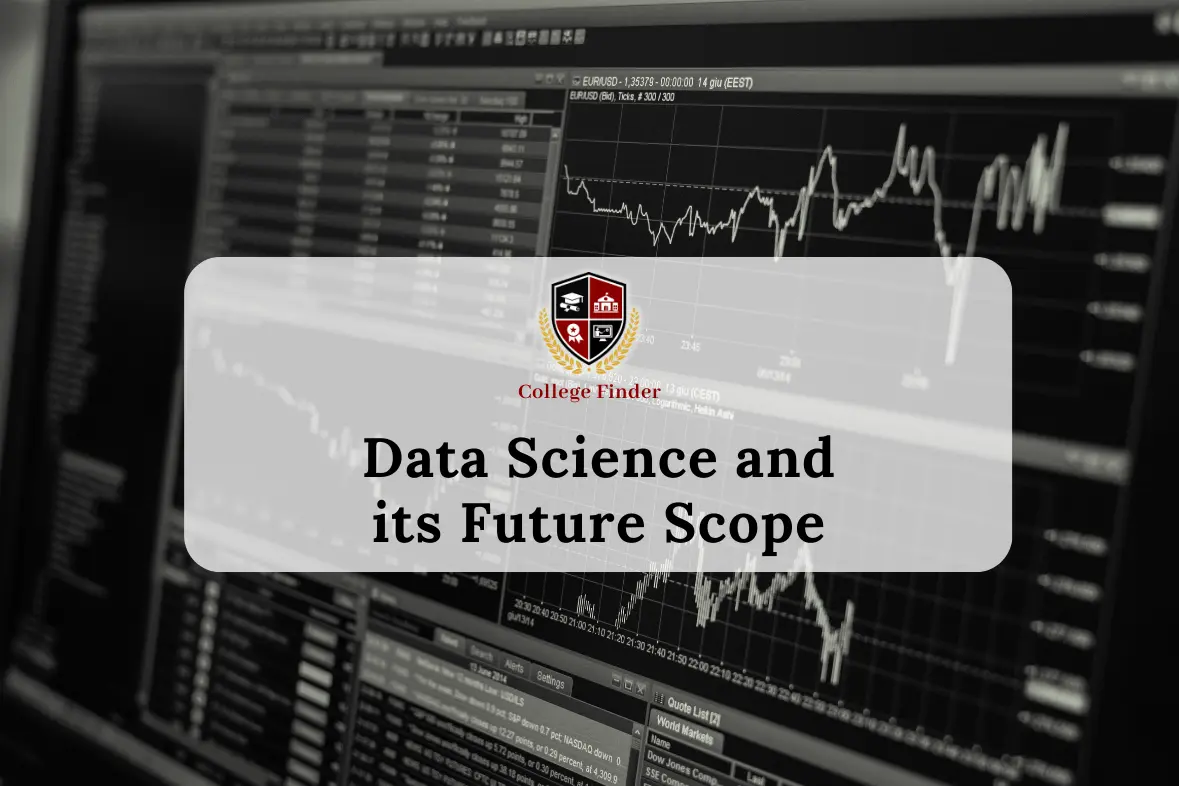
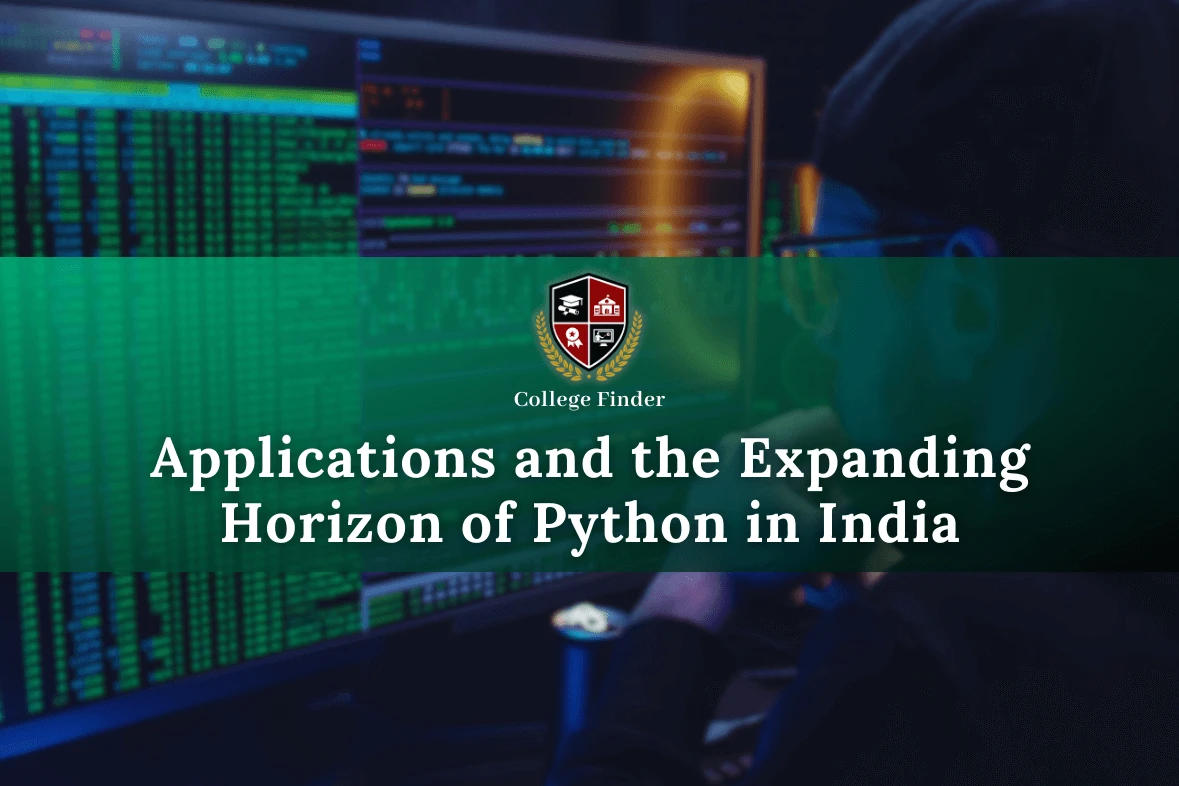





Add Comment
You must be logged in to post a comment.